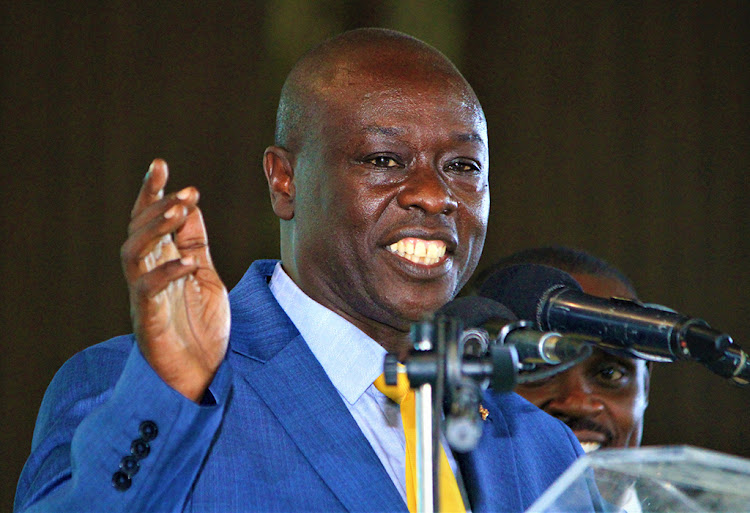
Impeachment serves as a constitutional mechanism to hold leaders accountable for misconduct, abuse of power, or violations of the law.
In Kenya, this process has evolved significantly since independence in 1963, becoming a focal point in the nation’s political landscape. Understanding the history of impeachment in Kenya, including leaders who have faced the process and the reasons behind it, sheds light on the country’s political dynamics.

A Brief History of Impeachment in Kenya
Kenya’s constitutional framework allows for the impeachment of both the President and Members of Parliament. The first serious attempts arose in the late 1990s when political tensions escalated amidst a backdrop of corruption and mismanagement. The Kenyan Constitution, amended in 2010, clarified the process, outlining the grounds for impeachment, which include gross misconduct, violation of the Constitution, and abuse of office.
The process typically involves two key stages: initiation through the National Assembly and a trial in the Senate. A two-thirds majority in the National Assembly is necessary to pass the impeachment motion, while a two-thirds majority in the Senate is required to convict and remove a leader.
Leaders Who Faced Impeachment and Survived
1. Governor Kawira Mwangaza
Meru Governor Kawira Mwangaza has successfully navigated multiple impeachment attempts, demonstrating her resilience in the face of political challenges. Despite facing significant opposition and accusations from her critics, Mwangaza has consistently rallied support from her allies, ensuring her position remains secure. Her ability to address concerns raised by the county assembly has played a crucial role in her survival, allowing her to maintain her governance and continue implementing her development agenda for Meru County.
2. Governor Anne Waiguru
Anne Waiguru, the former governor of Kirinyaga County, faced impeachment in 2020 primarily due to allegations of corruption and mismanagement of funds in the National Youth Service (NYS). The Kirinyaga County Assembly voted to impeach her, but she survived in the Senate. This case illustrates the complexities of political allegiances and the potential for political survival despite serious allegations.
Successfully Impeached Leaders in Kenya
1. Governor Mike Sonko
Former Nairobi Governor Mike Sonko faced impeachment after the county assembly voted overwhelmingly to remove him from office, citing allegations of corruption, abuse of office, and misconduct. The assembly’s decision followed a lengthy investigation that uncovered various financial irregularities during his tenure. Sonko, known for his flamboyant style and controversial leadership, challenged the impeachment in court, but the Senate ultimately upheld the assembly’s decision, sealing his fate as the first Nairobi governor to be ousted from office.
2. Governor Ferdinand Waititu
In 2020, Kiambu Governor Ferdinand Waititu became the first Kenyan governor to be successfully impeached. The County Assembly cited gross misconduct and abuse of office, specifically regarding the misappropriation of public funds and lack of accountability. The Senate upheld his impeachment, setting a precedent for holding governors accountable.
The Popularity of Impeachment as a Political Tool
It continues to be a popular route for removing leaders in Kenya for several reasons:
1. Political Accountability
Impeachment serves as a critical tool for political accountability. When leaders engage in corruption, abuse of power, or neglect their duties, impeachment provides a mechanism for citizens and their representatives to demand accountability. This process fosters a culture of responsibility among leaders.
2. Public Sentiment
Leaders facing public discontent often find themselves vulnerable to impeachment. In Kenya, public outrage over corruption scandals frequently leads to calls for accountability, making it a viable option for addressing grievances against political figures.
3. Political Rivalries
Kenyan politics is characterized by intense rivalries among various factions. Impeachment serves as a strategic tool for political opponents to undermine rivals. As factions vie for power, they may leverage the process to weaken their opponents and consolidate control.
4. Weak Institutional Frameworks
Despite constitutional provisions, Kenya’s institutional frameworks often struggle to enforce accountability. When oversight mechanisms falter, impeachment becomes a practical recourse for citizens and their representatives to address failures of governance.
5. Symbolic Action
It often acts as a symbolic gesture that signals a commitment to good governance. Even when leaders survive impeachment attempts, the process reflects societal expectations for integrity and accountability in leadership.
Conclusion
The history of impeachment in Kenya reflects a complex interplay of political accountability, public sentiment, and institutional weaknesses. While several leaders have faced the threat of impeachment, only a few have been successfully removed from office. As political dynamics evolve, it remains a vital tool for holding leaders accountable and ensuring that governance reflects the will of the people. Understanding this process is crucial for engaging with Kenya’s political landscape and advocating for effective leadership and accountability.





